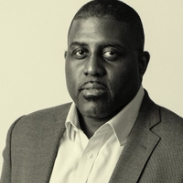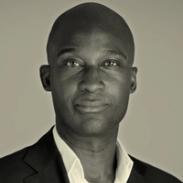 Reuters/Caitlin Ochs Reuters/Caitlin OchsTHE NEWS NEW YORK — The global financial system must be overhauled for African countries to address climate challenges, the continent’s leaders have said — despite concerns that political upheavals may make potential investors wary. African political and business leaders attending the United Nations General Assembly (UNGA) have stressed the need to drive investment to help the continent’s countries address the green energy transition, and therefore boost their economies, while also adapting to the extreme weather conditions. Kenya’s President William Ruto, speaking at an UNGA side event earlier this week, said there was an inaccurate perception that investments in African countries are risky, unfairly holding back the flow of funds needed. Ruto said there was “a need to rethink, to reimagine and to reconfigure” the approach to financial markets. Ruto said the building blocks of financial markets — such as credit rating agencies, sovereign debt analysis, and risk analysis — required a “rethink” and new approaches were needed to provide concessional finance. Nigeria’s president also called for a change in approach to investment opportunities during his address to the General Assembly. “Continental efforts regarding climate change will register important victories if established economies were more forthcoming with public and private sector investment for Africa’s preferred initiative,” Bola Tinubu told delegates. However, complaints about perceived risks come at a time when governance and rule of law is being scrutinized in West and Central Africa following a series of coups in the sub-region. Some African government officials and business leaders have expressed concerns behind closed doors that those flashpoints could potentially make the wider region unappealing to some investors. KNOW MORE African governments proposed reforms to international financial institutions to help fund climate change action, including new global taxes, in a document produced at the end of the three-day Africa Climate Summit in Kenya earlier this month. The Nairobi Declaration, as the plans are known, will form the basis of the negotiating position adopted by African countries at November’s COP28 summit. ALEXIS’S VIEW The ability of African countries to fund their shift to renewable energy and better prepare for the impact of changing weather patterns has global significance because the continent plays an outsized role in the world’s response to climate change. That’s due to the abundance of minerals needed for the green energy transition, such as metals used in electric vehicle batteries, and also demographics — the continent’s rapidly growing population will make it the workforce of the future. And as economic activity grows, so too will its emissions. Despite the global benefits, it’s clear that African countries are having to campaign hard for changes to an international financial system that typically sees the continent’s nations as risky but didn’t see the red flags in U.S. lending practices ahead of the 2007-2008 financial crisis. Underneath it all is a sense of frustration that the continent only contributes around 4% of global carbon emissions and has been hit hard by the effects of climate change — for example, in Libya’s recent floods and drought in the Horn of Africa. There does seem to be a broad international acceptance that something needs to change. U.S. President Joe Biden, in his UNGA address, said though multilateral development banks were among the best tools to deliver “high-quality investment” in developing countries “reforming these institutions can be a game-changer”. And the diplomatic efforts we’ve seen from various countries to build ties with African nations suggest an understanding that advanced economies need the continent — and specifically its resources. With African countries increasingly being given a voice to articulate their wishes, be it at the G20 or in the expanded BRICS bloc, and going into COP28 with a set of clearly articulated goals, it seems likely that some concessions will be made. History suggests the radical overhaul sought by Ruto and other leaders probably won’t happen anytime soon. However, piecemeal changes to improve access to finance for African countries that meet certain financial and political criteria do seem likely. ROOM FOR DISAGREEMENT Amaka Anku, who heads the Africa practice at political risk consultancy Eurasia Group, said the continent’s nations have a big role to play in changing risk perceptions, rather than merely relying on changes in global financial systems. “African countries have to do their part to streamline regulation requirements and border approvals, non-tariff barriers to trade and infrastructure — all those things you need to do to make an economy competitive,” she said. “That would help to attract investment.” Read the full story for the View from the Private Sector, featuring an interview with the CEO of pan-African conglomerate Axian. → |
| 










